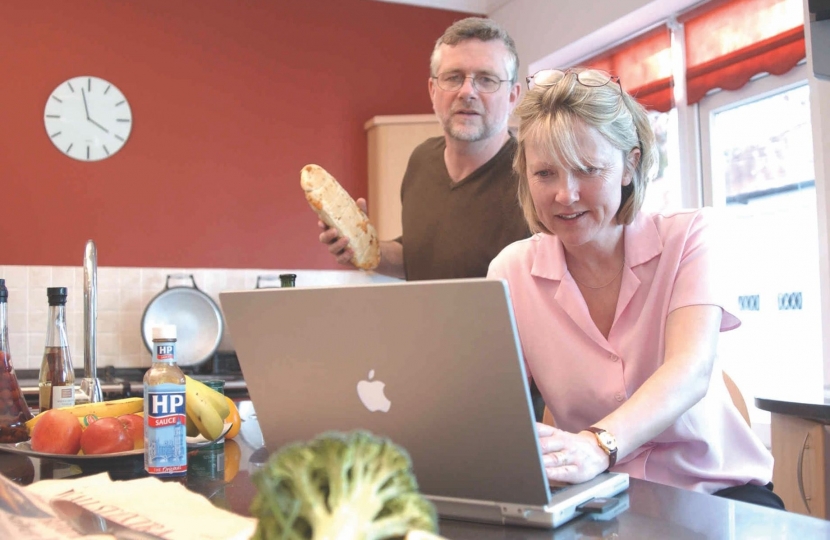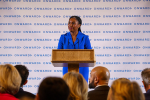
School reports, usually give an indication to parents about the progress of their child, depending on their age, towards achieving levels or grades. More than likely there will be some reference made to attitudes to learning, comments on behaviour and importantly what methods need to be adopted to improve progress. Comments on school reports, should not present surprises for any pupil. They will have developed an understanding of how their behaviour and attitudes to learning has impacted upon their progress during their time in school. As they grow older and more mature, pupils are encouraged to develop the skills and expertise in learning how to learn. This requires not only skill, but stamina and a willingness to learn from mistakes made in a learning journey.
Imagine, a report written on us this year. We are adults, we have mastered the art of learning, making progress, our behaviour, our attitude is exemplary ….is that really the case?
2020, has been a difficult year for us as individuals, for our communities and also for our nation .It is a year, which seems to have lasted a long time; a year which has offered very little opportunity to make real progress but it has, perhaps, given us an opportunity to reflect on what we have learnt about ourselves, our community and importantly what we as individuals need to do in the months and years ahead to sustain and develop ourselves as individuals and as members of a community.
There will be some of us who can look back at our school career and remember how, one or two individuals in the class engaged in low level disruption, which, in many cases interrupted our own learning and prevented progress being made. The few ruined it for the majority. Does that sound familiar?
Hopefully we may have been one of the many individuals, who realised the seriousness of the situation and followed the Government advice. We are horrified to observe how some individuals ignored the seriousness of Covid and decided to carry on with meeting friends, having parties and enjoying their lives. “Pushing the boundaries” has and always will be their mode of behaviour.
It would appear that there is a growing antipathy towards intellectuals. Increasingly it would appear that experts are branded cultural elites. They are seen as wanting to stifle freedom by dictating to the masses.
It is difficult for us all to realise that personal freedom and the importance as “me” as an individual has to take a back seat for a considerable time. The psychological impact of watching main stream news forces some people to turn to social media to seek out information that suits their own mode of thinking.
Lockdown is a word and a process which is alien to us, but it has provided an opportunity for us to learn something about how we behave as individuals and, as how this behaviour impacts on those we live amongst and work alongside. Our ability to learn from our mistakes must start now.
Did any of us really understand the role and importance of Public Health in our everyday lives, until now? All of a sudden personnel appeared on our screens providing factual information, which sadly we have in some cases ignored. We are a sick nation. We have the highest obesity rates in Europe. We now know that obesity, coronary heart disease, inactivity and diabetes have contributed to the rising death rates.
There are massive regional health inequalities. The north-south divide has become glaringly apparent during the second wave of this pandemic. But there are also inequalities across our own borough of Sefton; inequalities which need to be tackled with proactive leadership. Have we focussed too much on the NHS and not enough on our own personal contribution to Public Health?
We need to be more proactive in improving our lifestyles and our policy makers need to be more accountable. Health targets will undoubtedly appear and be closely monitored. Public health issues will be high on local and national agendas.
We need to expect resolute action by localities, businesses, NHS as well as the utilisation of scientific data and technology in improving all aspects of Public Health. There will be an urgent need for strong and robust leadership from those charged with meeting the targets to improve all aspects of our public health. Now is the time for our local Councils and councillors to galvanise the goodwill of the communities, building upon the lessons learnt so far.
We also need to demand that better relationships are cultivated between national and local public health policy makers. Political posturing must stop; it frustrates the electorate and does nothing to improve public and citizen engagement which will be vital if all aspects of the “levelling up programme “is to be addressed.
We have had a considerable amount of time to reflect upon our own response to pandemic. Now, we must address some of the public health issues that have been highlighted in our region. We have to “build back better“ in our approach to our everyday lives. This will need self-determination, will power and continued resilience, characteristics which we have had to develop significantly this year. It will also require us to demand more from out local policy makers they will have to be more flexible to be able to make effective and rapid decisions and develop and refine their project management skills with an increasing willingness to work with the private and voluntary sectors.
New technologies are changing the way we live and work .and the way in which we, communicate, collaborate and interact with service providers. Council leaders will need to stay ahead of developments and identify ways to make innovative use of technology to improve all aspects of life within the borough.
We cannot expect the Government to do everything for us. In fact when suggestions are made concerning where supermarkets are requested to place “sweets” or to reduce the sugar content in soft drinks, they are accused of creating a “nanny state “But, as we have witnessed over the last ten months it has been vital to listen to and follow the advice of Government in order to save lives and protect the NHS. Our knowledge and understanding of scientific terms and the inter relationship of our own behaviour on others has become embedded in our daily lives. Our ability to model Covid Protocol in the work place, or when shopping has been quickly learnt by the majority of the population.
We all need to play a part in improving Public Health. Public Health is everything. It is the air we breathe, it is the food we eat, it is our behaviour and culture; it is the community we live in and the people we live alongside. Being members of a community requires us to respect and care for our amenities, to model good behaviour, to be socially concerned for the environment and to realise the impact of our actions on our locality. How we behave, the decisions we make as individuals impacts on others. Failure to recognise this places us in a perilous situation.
For too long, there has been a gulf between Public Health and the NHS. Local authorities’ roles in health and social care were part of another silo and the ability to interconnect the strategies which linked these key activities seemed to be confused and with no single organisation taking responsibility.
There is increasingly a need for an integrated care strategy, taking an overview of public health and well-being at a localised level, recognising that each geographic area has different needs and expectations. There is a great deal to be accomplished and every one of us will be expected to play an important role.

